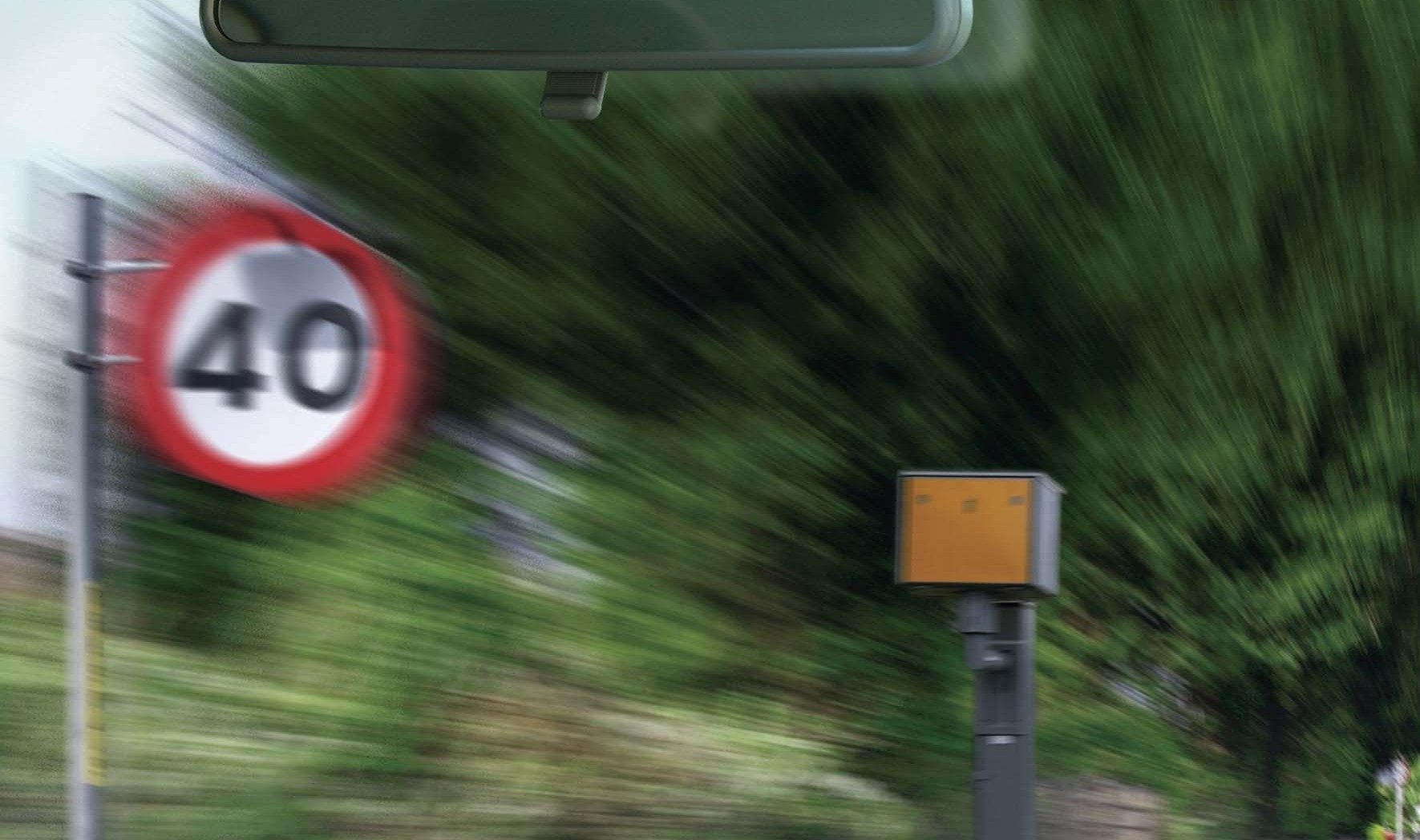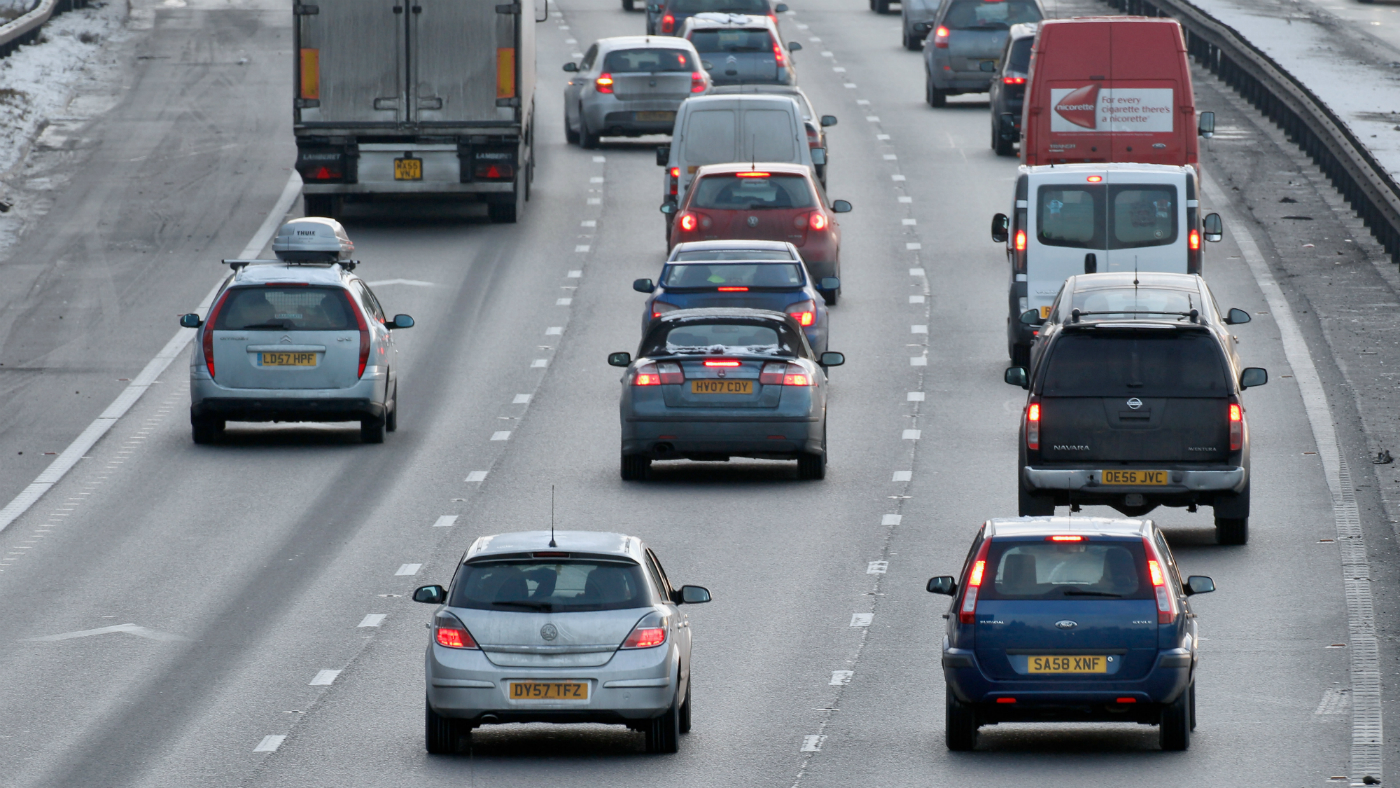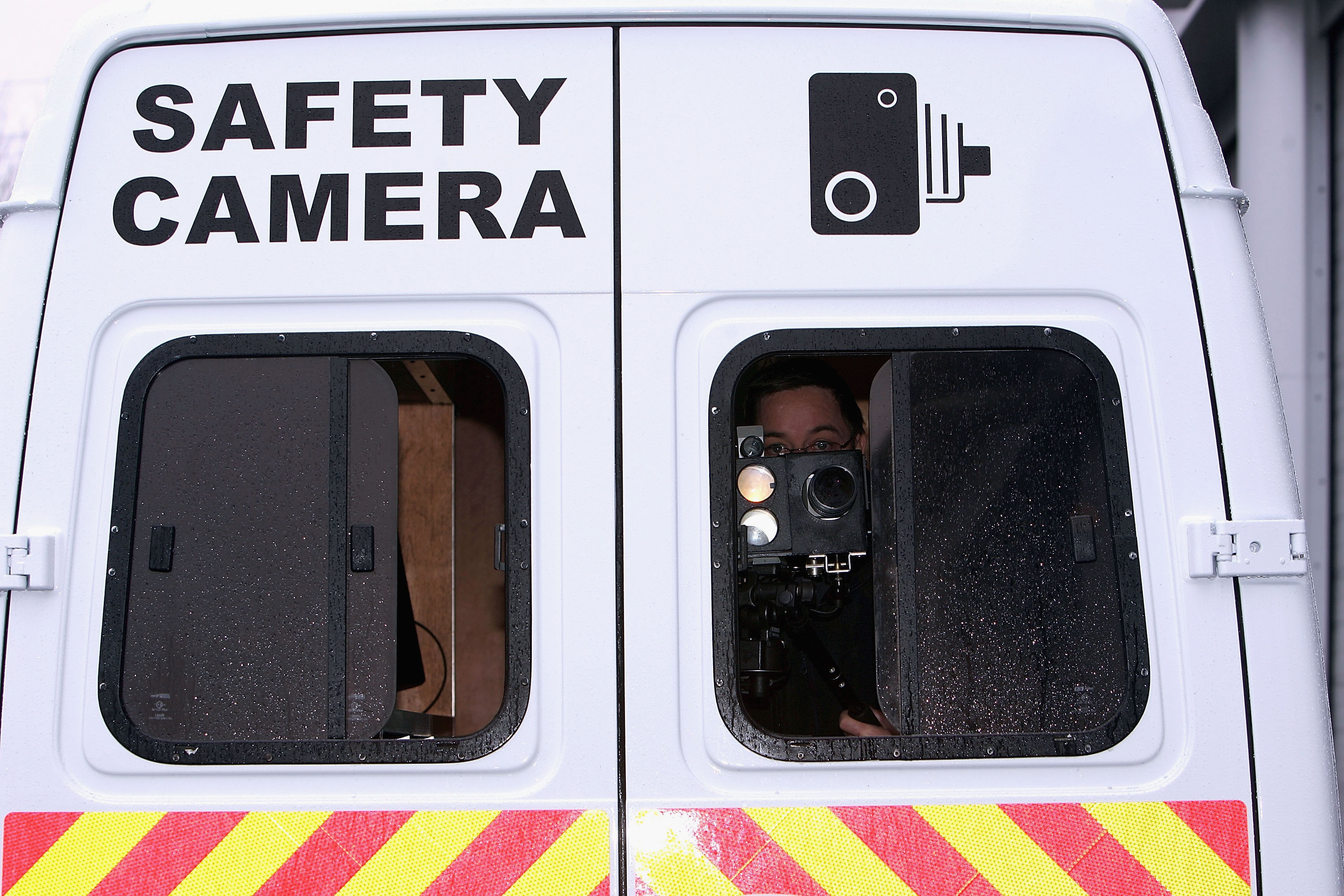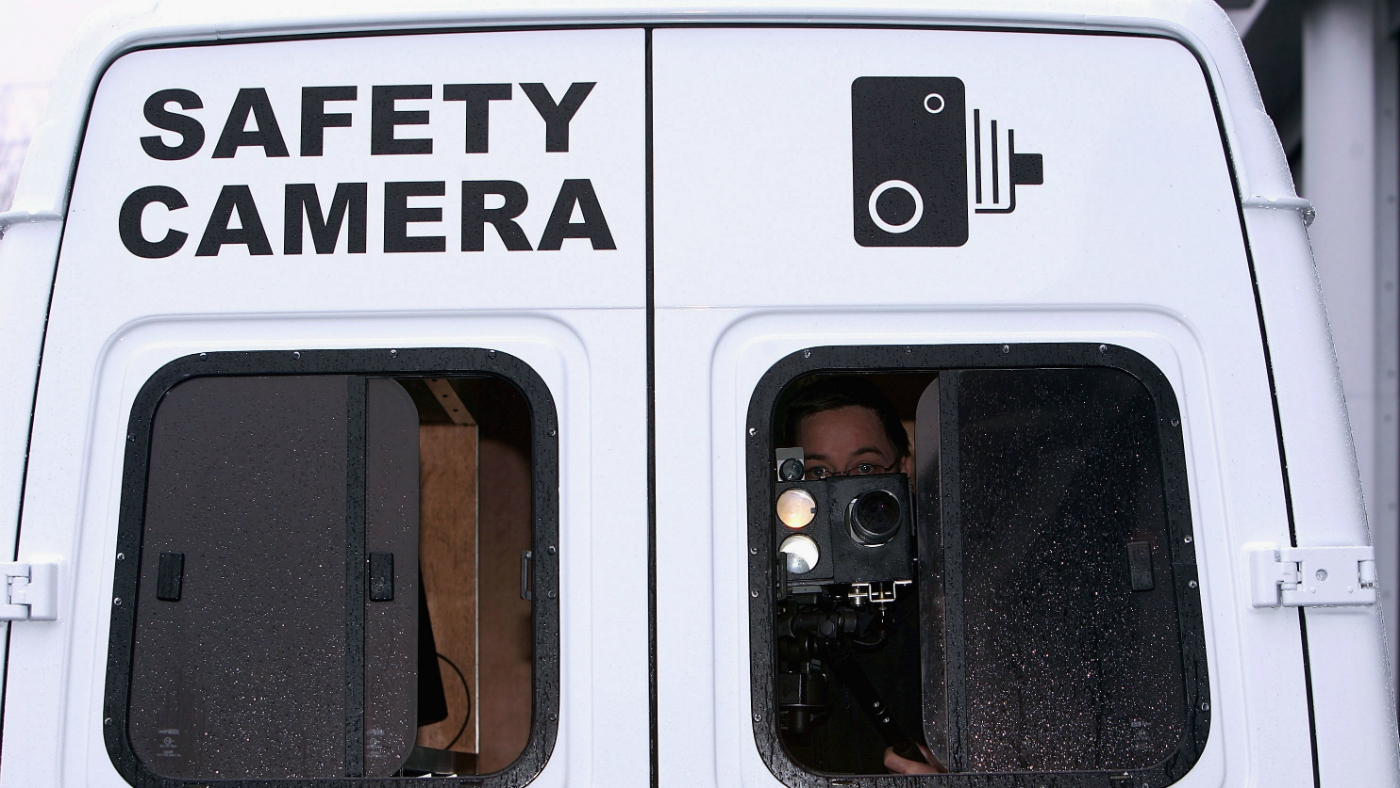Speeding fines: penalty bands, fees and points
Our guide to speeding penalties and what happens when you overstep the limit

A free daily email with the biggest news stories of the day – and the best features from TheWeek.com
You are now subscribed
Your newsletter sign-up was successful
The Government introduced a new system for speeding fines in early 2017 that introducing more severe penalties for drivers who are caught breaking the speed limit.
Under the old system, the minimum penalty for speeding drivers was three points on their license and a fine of £100, which raised to a maximum £1,000 for more serious offences. Young drivers and severe offenders also faced a driving ban in certain circumstances.
But the revamped system means that drivers pay substantially more than they did on the previous system, as fines are now calculated as a percentage of the offender’s weekly income.
The Week
Escape your echo chamber. Get the facts behind the news, plus analysis from multiple perspectives.

Sign up for The Week's Free Newsletters
From our morning news briefing to a weekly Good News Newsletter, get the best of The Week delivered directly to your inbox.
From our morning news briefing to a weekly Good News Newsletter, get the best of The Week delivered directly to your inbox.
The stricter fines were introduced following “responses to a consultation arguing previous guidelines did not properly take into account the increase in potential harm that can result as speed above the limit rises”, The Guardian says.
Here’s everything you need to know about speeding fines:
What are the bands for speeding fines?
Speeding fines are broken down into three categories, with varied penalties that depend on the severity of the offence.
A free daily email with the biggest news stories of the day – and the best features from TheWeek.com
fThe first category, Band A, and is only for minor offences. The Daily Telegraph says anyone who drives “between 21mph and 30mph in a 20mph zone, 31mph to 40mph in a 30mph zone, or 71mph to 90mph on a 70mph road” will receive a Band A penalty. This results in three points being added to the offender’s licence.
Band B “is for more serious cases of speeding”, adds the paper. This means if you’re travelling between 31mph to 40mph on a 20mph road, 41mph to 50mph in a 30mph zone, 56mph to 65mph in a 40mph zone or up to 100mph in a 70mph zone, you will be given a second-tier fine. This results in six points on your licence or a driving ban of between seven and 28 days.
Band C is reserved for the most severe speeding offences, as The Telegraph says anyone travelling “41mph or above in a 20mph zone, 51mph or above in a 30mph zone, or above 101mph in a 70mph zone” will incur a Band C penalty. This adds six points to your license or a disqualification of between seven and 56 days.
How much will I pay in fines?
Those who are not given the option to pay a £100 fixed penalty, which the RAC says is reserved for minor speeding offences, will be handed a fine calculated as a percentage of their weekly income.
A Band A speeding penalty will see drivers fined roughly 50% of their weekly income, while a Band B offence rise to 100% and Band C commands a 150% penalty, says Evo.
These figures can increase or decrease by up to 25% ”subject to the court’s discretion based on the specifics of the case in question”.
Variables that could impact a court case include poor weather conditions, first-time offending, the number of people in the nearby area and “the timing of an offence in relation to previous convictions committed”, adds the magazine.
A limit for how much offenders can be charged for speeding offences is also part of the new system, with Autocar reporting that penalties are capped at £1,000 on public roads and £2,500 on motorways.
These penalties only come into effect if drivers contest their speeding ticket in court, or they are not eligable for a £100 fixed penalty or a speed awareness course.
How do points affect my licence?
If you’ve been caught speeding, there’s a good chance the police officer who recorded you overstepping the limit will issue you with a fine and points on your licence.
In some instances, drivers can avoid points by attending a speed awareness course. This is only offered at the police officer’s discretion and is usually given to those with no prior speeding convictions.
Points are given on a scale of three to six, says WhatCar?. The more severe the offence, the more points you’re assigned.
Most points stay on your licence for four years from the date of the offence, the reviews site says. However, some major offences, such as causing a death by dangerous driving, can result in points remaining on your licence for 11 years.
Amass more than 12 points over the course of three years and your licence will be revoked.
-
 Health insurance: Premiums soar as ACA subsidies end
Health insurance: Premiums soar as ACA subsidies endFeature 1.4 million people have dropped coverage
-
 Anthropic: AI triggers the ‘SaaSpocalypse’
Anthropic: AI triggers the ‘SaaSpocalypse’Feature A grim reaper for software services?
-
 NIH director Bhattacharya tapped as acting CDC head
NIH director Bhattacharya tapped as acting CDC headSpeed Read Jay Bhattacharya, a critic of the CDC’s Covid-19 response, will now lead the Centers for Disease Control and Prevention
-
 Astroworld: twin probes launched into deadly crush at Travis Scott concert
Astroworld: twin probes launched into deadly crush at Travis Scott concertIn Depth Civil lawsuits also under way after festival stampede leaves eight dead
-
 Thieves pelt police with stolen wine
Thieves pelt police with stolen winefeature And other stories from the stranger side of life
-
 Speed camera tolerances: why you may not get fined for going over the limit
Speed camera tolerances: why you may not get fined for going over the limitIn Depth New study finds that most UK police forces do not follow zero-tolerance approach
-
 Driver jailed after ‘repeatedly’ swearing at speed cameras
Driver jailed after ‘repeatedly’ swearing at speed camerasIn Depth Police recorded Timothy Hill making ‘rude gestures’ - then found radar jammer in his car
-
 Police found using speed cameras for non-speeding offences
Police found using speed cameras for non-speeding offencesSpeed Read More than a third of UK forces use the technology to enforce mobile phone and seatbelt laws
-
 Why police groups are boycotting Quentin Tarantino
Why police groups are boycotting Quentin TarantinoIn Depth Police told to stay away from 'cop hater' Tarantino's films – but do movie boycotts ever work?